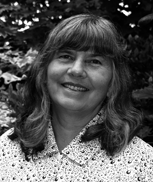As soon as the chaplain hands me a hard hat and a high visibility jacket I realize that this is not going to be a walk in the park. We drive around the wharves and loading piers of the docks, and I know that what he has told me is true: We have entered an invisible world. The chaplain, representing the Roman Catholic charity Apostleship of the Sea, has made his home here in this continually shifting and apparently godforsaken world that extends for many miles along the northeast English coastline, and his profound love for the place shines out of his eyes. The remaining millions of us switch on our lights without a thought for the men who have been at sea for the last nine months, carrying coal across the ocean to make this possible. But the chaplain sees the invisible. He knows that God is here.
His very modest room overlooks the quayside, and no ship enters or leaves the port without passing beneath his loving scrutiny. The walls reveal jagged cracks from the juddering of huge cargo ships through the narrow lock just below his window. His constantly changing companions in this inhospitable wilderness are the thousands of foreign seafarers—Filipino, Chinese, Ukrainian, Iranian, Indian and so many more—who pass through these docks, literally like ships in the night. They would be anonymous if he did not shake their hands, ask their names and make them welcome. They would be stranded for as long as their ship is moored if he did not ferry them back and forth to the chaplaincy center. They might well be unpaid and undefended if he did not make it his business to watch out for exploitative practices and alert the law enforcement authorities.
We make our way through showers of coal dust and iron ore and towering stacks of containers, carefully observant of the movements of huge overhead cranes, and board a newly arrived vessel. The chaplain points out the discs attached to the top of the ropes to prevent the wharf rats clambering on board. He remarks that the tide is low and the climb up the gangplank will be easy this morning. High tide would mean a much steeper gradient to scale.
A Filipino seafarer asks him for help wiring money home to his family. No problem. We take him to a place where he can do this as cheaply as possible. On the way back he tells us it is school enrollment week in Manila. His regular pay has not been sent to his home account for three months. The school will not wait. He needs to send the pocket money he has saved. When the transaction is complete, his relief is palpable. The simple offer of a ride to the money exchange office means that three Filipino children will now be able to go to school for another year. Mighty trees can grow from tiny seeds of kindness.
Another seafarer has never seen his little son, born several months ago. In the chaplaincy he can talk by Skype with his wife back home. The tears flow as he proudly shows his little one on the screen. Here the Gospel is a phonecard or a webcam bringing sight to the blind, reconnecting the disconnected, mediating God’s love to these lonely, far-from-home fathers.
Not infrequently the crews of ships sailing under flags of convenience, for which no nation considers itself responsible, speak with the chaplain about withheld pay, insufficient food, physical abuse or even the manifest unseaworthiness of their vessel. He has been around these docks for decades now, and he knows how to evaluate such complaints. The Coast Guard trusts his judgment. A call to the maritime police can cause the vessel to be detained and investigated. The Gospel here is a watchful eye from someone who cares enough to take those first steps to set captives free and bring support to the oppressed and the afflicted.
The chaplain has asked one newly arrived crew whether there is anywhere they would like him to take them while they are moored. They come back with their astonishingly modest request: “Father, would you take us to somewhere where we can walk on grass?” they ask. He takes them to a nearby park, where they take off their shoes and socks. Weary, calloused feet that have trodden only heaving steel for the past many months rejoice to feel the cool firmness of the fresh and living grass.
“Anyone would think I had given them the earth,” the chaplain comments with a quiet smile. And, of course, he has. Along with a glimpse of heaven.









Just as Ignatius found God everywhere, she has a gift for sharing God with others wherever she is - and God seems to find her everywhere.
She is one of the reasons I subscribe to America Magazine. I love her articles and her books and have been blessed by her wisdom on retreats.
Thank you, America and Margaret.